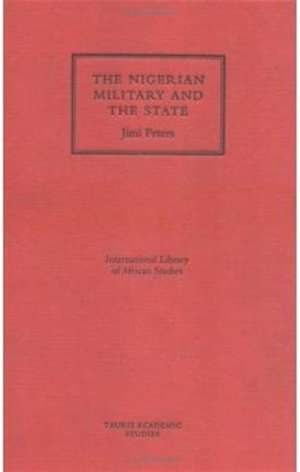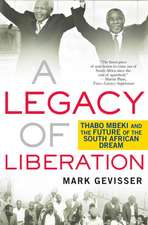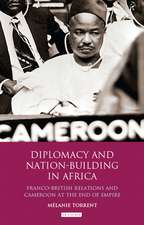The Nigerian Military and the State
Autor Jimi Petersen Limba Engleză Hardback – 30 dec 1997
Preț: 775.36 lei
Preț vechi: 1113.85 lei
-30% Nou
Puncte Express: 1163
Preț estimativ în valută:
148.36€ • 161.67$ • 125.02£
148.36€ • 161.67$ • 125.02£
Carte tipărită la comandă
Livrare economică 23 aprilie-07 mai
Preluare comenzi: 021 569.72.76
Specificații
ISBN-13: 9781850438748
ISBN-10: 1850438749
Pagini: 224
Ilustrații: tables, bibliography, index
Dimensiuni: 138 x 216 x 27 mm
Greutate: 0.61 kg
Editura: Bloomsbury Publishing
Colecția I.B.Tauris
Locul publicării:London, United Kingdom
ISBN-10: 1850438749
Pagini: 224
Ilustrații: tables, bibliography, index
Dimensiuni: 138 x 216 x 27 mm
Greutate: 0.61 kg
Editura: Bloomsbury Publishing
Colecția I.B.Tauris
Locul publicării:London, United Kingdom
Cuprins
The military and political rule; the internal and external environments; the colonial legacy; the formative years; the Civil War years; laying a new foundation; restructuring the foundation; the Babangida years; conclusion.










